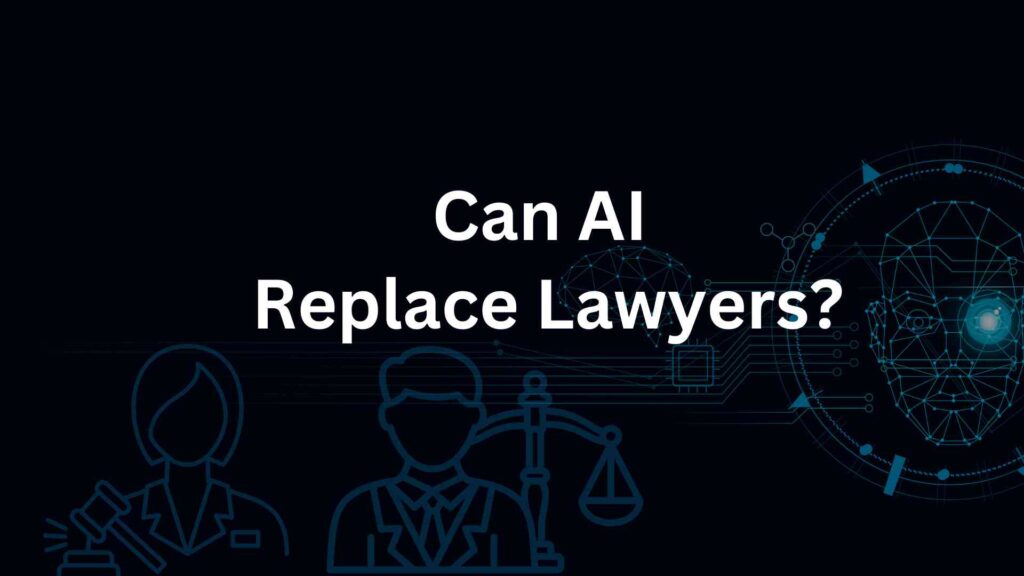
AI is transforming the legal field, but the question is, can AI replace lawyers?
Whether you’re a seasoned professional concerned about technology taking over, a young lawyer unsure of AI’s role in your practice, or simply someone wondering if AI could replace lawyers in the future – one thing is certain: understanding how AI works alongside human insight is key to unlocking new levels of efficiency, creativity, and success in legal work.
To truly understand AI’s role in law, it’s essential to first recognize the aspects of legal practice that require more than just facts and data – areas where human insight, intuition, and empathy remain irreplaceable.
Let’s explore these irreplaceable elements and why they are so crucial to the practice of law.
1. Understanding Human Behaviors, Intentions and Motivations
Legal cases often depend on the ability to understand complex human behaviors, emotions, and motivations. Lawyers use their insight into these areas to shape strategies and make decisions that AI simply cannot replicate.
- Deep Contextual Understanding: Legal decisions often hinge on understanding the deeper context of human interactions. For example, in family law or criminal cases, knowing what drives individuals – such as a parent’s emotional attachment in custody cases or the motivations behind a criminal defendant’s actions – can significantly influence case outcomes. AI, with its data-driven models, lacks the depth to interpret these subtleties, which often require human intuition and empathy.
- Emotional Insight: Lawyers must read and respond to the emotions of clients, judges, juries, and opposing parties. Whether calming a distressed client or sensing a jury’s mood to adjust arguments, emotional intelligence is key. In contrast, AI’s responses are based on programmed data, lacking the genuine emotional insight that guides lawyers’ decisions and strategies.
- Behavioral Interpretation: Recognizing non-verbal cues or understanding when someone is withholding information is a skill unique to human lawyers. For instance, observing when a witness is nervous or when an opposing lawyer is pushing a weak argument requires real-time behavioral analysis that AI cannot replicate. Lawyers use these insights to make strategic decisions, whereas AI cannot interpret or react to such cues with the same flexibility and depth.
2. Influences and Cultural Sensitivity
- Adapting to Cultural and Social Contexts: Effective legal practice often requires an appreciation of cultural backgrounds and social norms, which shape how laws are interpreted and applied. Lawyers have the ability to adjust their arguments and approach based on these factors. AI, on the other hand, may not grasp the full significance of cultural subtleties or how they affect legal decisions.
- Influence of External Factors: Lawyers often consider how societal trends, political climates, or economic conditions influence legal outcomes. For example, a shift in public sentiment might impact jury decisions or judicial interpretations. Lawyers integrate this awareness into their strategy, a level of holistic thinking that AI is not yet capable of achieving.

3. Creativity in Problem-Solving
- Human-Centric Creativity: Creativity in legal problem-solving is closely tied to understanding human behaviors, emotions, and motivations. Lawyers use this understanding to craft innovative strategies that AI, limited by data and pre-set algorithms, cannot match.
- Real-Time Adaptability: Legal proceedings often require quick thinking and creative adjustments based on new information or shifts in atmosphere. This ability is rooted in empathy and intuition, allowing lawyers to adapt in ways AI cannot.
- Complex Issues and Influences: Effective solutions often come from recognizing multifaceted motivations and finding unique approaches. Lawyers leverage their emotional intelligence to balance these factors, an area where AI remains limited.
4. Complex Negotiations and Settlements
- Emotional Intelligence: Successful negotiations require reading subtle cues, building rapport, and understanding unspoken motivations. Lawyers use empathy and intuition to navigate these complexities, while AI lacks this human touch.
- Adaptive Strategy: Lawyers adjust their tactics as negotiations evolve, responding to shifts in tone and new developments. AI’s responses are fixed and cannot adapt dynamically in the same way.
5. Accountability and Trust
- Ethical Responsibility: Lawyers are held accountable for their decisions, ensuring transparency and trust in legal outcomes. AI, however, lacks accountability, making it difficult to rely solely on its actions for critical legal matters.
- Public Confidence: Clients trust human lawyers to safeguard their interests, offering reassurance that AI cannot provide. The personal responsibility and ethical oversight lawyers provide are crucial in maintaining confidence in the legal system
Law is not merely about gathering facts, analyzing figures, and presenting them in a structured manner.
It is a discipline that requires an understanding of the intricate dynamics of human behavior, the subtleties of motivations, and the complexities of emotions that influence legal outcomes. While AI can enhance productivity and efficiency, it cannot replace the deep human insight essential in legal practice.
This shift will enable them to deliver more impactful, client-centered outcomes with greater speed and precision.
What are your thoughts? Can AI replace lawyers?

“AI is a tool, not a replacement. But the lawyers who don’t embrace AI will be replaced by those who do.”
Explore How AI can bring efficiency to the Sri Lankan legal industry with AI-powered legal research and legal assistant tools such as AI Pazz
Pingback: Can AI bring efficiency to the Sri Lankan legal industry?